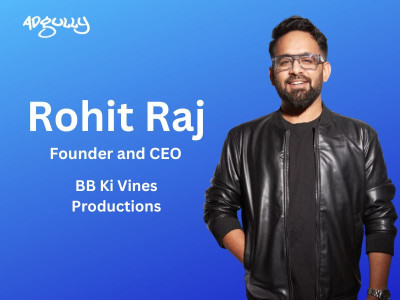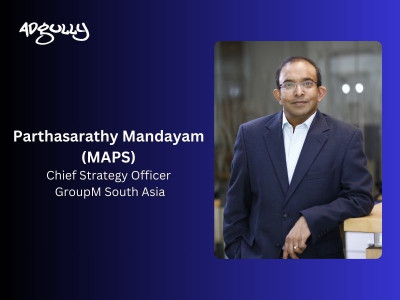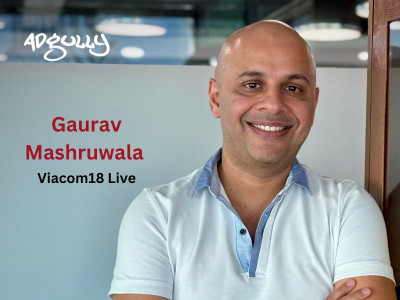Data Privacy: Why it remains an elusive proposition? - Part 2
While the concerns over data privacy grow along with the massive growth that the digital ecosystem witnessing, it very important for us as users to understand the importance of data privacy and protect ourselves from any kind of theft or breach. Digital awareness is more important today than it ever has been and the entire ecosystem along with the government and taking it more seriously. While businesses and the government take important measures to ensure data privacy, it is important for us as users to play our role in this ecosystem and ensure safety and security for all.
In Part 1 of this series, we had highlighted the growth of digital, concerns and awareness of data privacy and the Indian Data Protection Bill.
Also read:
Data Privacy: Why it remains an elusive proposition? - Part 1
In the second and concluding part of this report, we will focus on the thin line separating UX and Data Privacy, how do data breaches happen and the future of data privacy in India and the global markets.
UX vs Data Privacy
We are all aware of how important data has become in today’s day and age. Every message, ever click and everything we consume via a digital medium is recorded and stored. Collecting consumer data benefits brands and businesses as it helps them understand the consumer better. Can you imagine the amount of data being collected? For example, in E-commerce, In 2019, an estimated 1.92 billion people purchased goods or services online, and during the same year, e-retail sales surpassed 3.5 trillion U.S. dollars worldwide and it has only grown since then.
Understanding the consumer also means providing services and user experience according to the needs of the consumer. The more data a business or brand collects, the better they are able to create a more personal experience for the consumer. But, is there a line here that needs to be maintained?
Pankit Desai, Co-founder and CEO, Sequretek, remarks, “The question is do you as a user want personalization. There is a thin line between personalising and nudging you to change your preferences. The biggest thing that these platforms do is change your preferences, slowly, over a period of time. So their USP is not helping their customers identify users with specific preferences, it is actually to change the user behaviour of these users to suit the platform’s customers.”
According to Shradha Agarwal, COO and Strategy Head, Grapes Digital, “From the perspective of brand’s experience and UX, no one shares data with another party. Every data collected from a user, whether it is about their preferences or purchase power, or demographics. It is always stored and preserved within the platform and further used to target better. For example, if I ask FB and Google that I want to target ‘X’ type of consumers they won’t give me that data. They will use it to target them on their platform. So, from a UX and data privacy perspective, it’s in the hand of consumers because they have to turn out certain settings available in these apps while downloading and be sure what kind of data they want to share. You have to choose wisely to accept cookies or not accept them.”
The storage of all this data has been susceptible to Cyber-theft and Cyberattacks which have been of growing concern for all the stakeholders of the digital ecosystem and as data privacy concerns have grown, the need to stop cyber-attacks has also been vital.
Kumar Ritesh, Founder and CEO, Cyfirma, points out, “There are many ways for a cyberattack to occur, but phishing attacks have emerged as the top cyberattack method year after year. It has proven to be highly effective for cybercriminals to compromise corporate networks and steal private and confidential data. Phishing attacks are essentially social engineering tactics where hackers masquerade as persons of authority or influence to lure victims into clicking malicious email attachments, links or websites, and subsequently leading to malware infecting IT systems and networks. This provides hackers access to compromised systems where they can move laterally to carry out reconnaissance activities, elevate their access level so they can get hold of critical data and make changes to other aspects of IT architecture. Once a hacker is in the corporate network, he can also get into adjacent systems or other connected networks including supplier systems.”
Hence, as UI and UX technologies grow, the need for data for the efficiency of this technology will also grow. As data usage and consumption grows, the need to protect data becomes highly important for every brand, business, government and also users.
The growth of digital has not been specific to India and every country across the globe has been witnessing tremendous growth. As this growth happens, Governments have taken the concerns over data privacy more seriously and you see bills like the GDPR in Europe as an attempt to make data safe and more secure.
As India looks to chart out its data privacy norms, what are the key learnings from the global market?
Anup Cheruvathoor, Chief Technology Officer, Consumer IOT at Hero Electronix, notes, “With various countries now focusing on Data protection, there are certain learnings around the world that can be implemented here. Notifications for data breaches, like those included in Singapore, and making users the owners of their data, like in the EU's GDPR. However, these learnings must be taken in content of the Indian market, and keep in mind the economic cost of implementing these, be it of data localisation, increase in compliance costs or simply reduced of data for new companies to work with.”
He further adds, “What strong National Data protection laws do is define a framework in which such sensitive data is stored, processed and distributed. It also creates a frame to audit the implementation and adherence to these rules and regulation. It is important that these are legislated and implemented at the earliest. India needs this now, with a robust and independent body monitoring its adherence, as is the case of TRAI with telecom sector, SEBI in case of exchanges.”
According to Mihir Karkare, EVP of Mirum India, “While platforms need to prioritise data and cyber security, the bigger challenge will be educating the end consumer about the importance of data security and privacy. Some of the countries which are ahead of us on these matters are the ones that are likely to have more aware consumers.”
The concern with data privacy is big and governments along with businesses are trying to map their way ahead when it comes to data privacy and the safety of the users’ data. In a country like India, data privacy becomes very important not only because of the magnitude of data, but also because of our neighbouring countries and situations on the border. Today, data is equal to a nuclear missile which in the wrong hands can really cause great harm and destruction to anybody or any nation.
While the Government charts the way ahead with the Data Protect Bill, it is our responsibility, too, as citizens and users to not only be more aware on about data privacy, but also be the first line of security when it comes to data theft.





















Share
Facebook
YouTube
Tweet
Twitter
LinkedIn